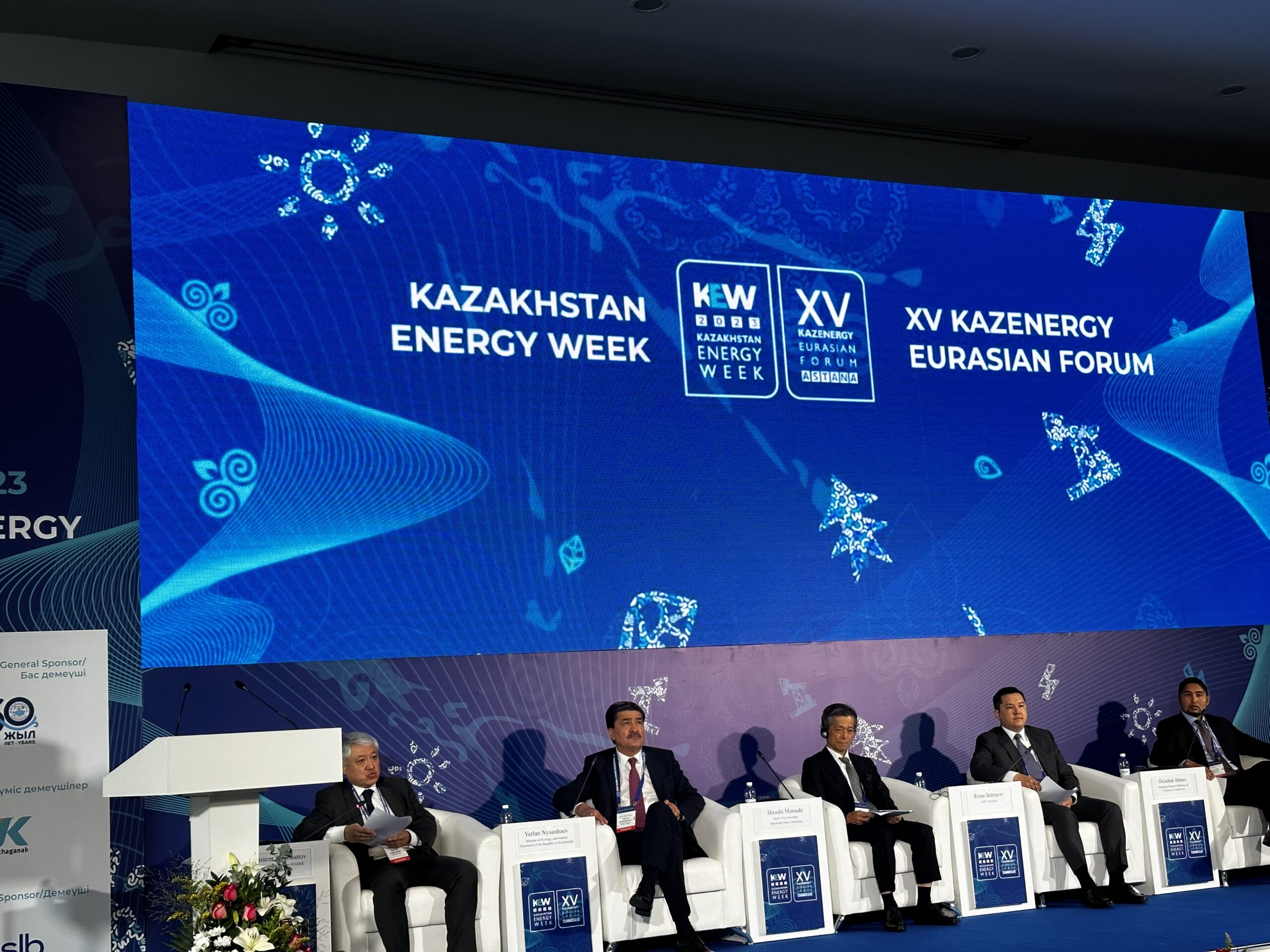ASTANA – The first day of the 15th KazEnergy Eurasian Forum on Oct. 3 focused on the government and private sector partnership to achieve carbon neutrality by 2060.

Strategic Session: Eco-Environment and Energy: Vectors of Partnership. Photo credit: The Astana Times.
During the Strategic Session: Eco-Environment and Energy: Vectors of Partnership, Managing Partner of McKinsey & Company in Central Asia Dulatbek Ikbayev presented extensive research on the topic, necessitating a comprehensive approach to this goal.
Ikbayev noted Kazakhstan needs to develop the market of energy service companies by taking measures such as tax incentives for companies engaged in energy efficiency projects.
He also spoke about the importance of conducting energy audits and implementing a program to enhance buildings’ energy efficiency.
Creating an attractive investment climate, regulating the renewable energy sector, and modernizing and expanding infrastructure were highlighted as key drivers to attain carbon neutrality.
The medium-term energy strategy for Kazakhstan involves balancing energy security, transitioning to cleaner energy sources, and ensuring affordability for both industries and consumers. Achieving it is a complex challenge globally, Ikbayev emphasized, given that 64 countries committed to achieving net zero are now responsible for 69% of carbon dioxide emissions, about 90% of GDP, and 68% of the total population.
Kazakhstan holds the fourth position in carbon dioxide emissions, and to effectively address this concerning issue, the country will need to take significant and sustained actions to reduce greenhouse gas emissions by 2060.
Minister of Ecology and Natural Resources Yerlan Nyssanbayev emphasized that a critical aspect of our decarbonization strategy involves channeling investments into a green fund. This approach focuses on increasing carbon absorption through tree planting rather than reducing emissions.
Each year, Kazakhstan plants between 60,000 and 80,000 hectares of trees, expanding the forestry fund to a range of two to five million hectares. The minister said President Kassym-Jomart Tokayev had instructed the initiation of a project to plant two billion trees.
Ikbayev emphasized that the significance of renewables in propelling the energy transition is evident, and this trend is notably observable in countries like Germany, where many wind farms and solar panels are in operation.
According to Ikbayev, the share of renewables in Kazakhstan would surge from 31% recorded in 2021 to 84% by 2050, a revolutionary shift anticipated to meet the countries’ ambitious targets.
“We also expect the wind generation to increase four times by 2030,” he said.
Ikbayev also elaborated on countries now introducing cross-border carbon taxes, which will significantly impact Kazakhstan’s importers. He highlighted that nations directly convey a clear message: “If you do not undertake decarbonization efforts, we will impose taxes on your products.”
“We need to establish a strong partnership between the government and businesses to start investing right now, thereby preventing underpaid taxes and preserving competitiveness in the market,” he stressed.

